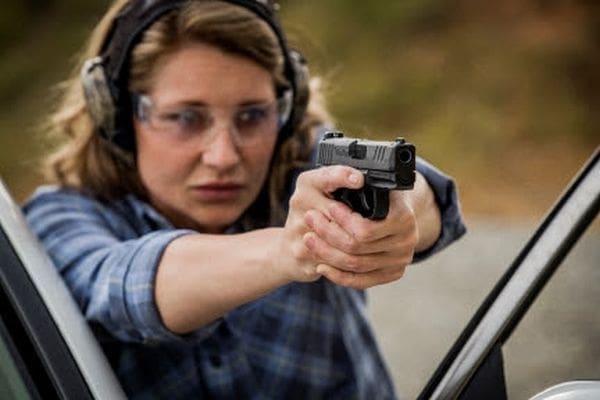6 Tips for Buying Your First Firearm

From armorer training courses and safety classes to picking out the perfect model and ammunition, purchasing a firearm is more than just heading to the gun store. With the many options and essential features to consider when purchasing property, it can be easy for aspiring owners to become overwhelmed. Luckily, this guide provides six tips for buying your first firearm, ensuring you make a responsible and informed decision.
1. Determine Your Purpose
A durable and reliable handgun is typically the best option for self-protection or home defense. If you love hunting or shooting sports, consider purchasing a rifle or shotgun instead. Your firearm’s purpose should align with your lifestyle, interests, and needs. Research its design, operation, and functionality to identify the perfect firearm.
2. Consider Your Budget
Firearms can vary significantly in price, so it’s essential to consider your budget. Remember that the cost includes the firearm, necessary accessories, and ammunition. Additionally, consider the cost of training and any permits or licensing fees that may be required. By factoring in these expenses, you can create a realistic budget and find a firearm that meets your needs and financial capabilities.
3. Understand the Law
Firearm legislation varies among states, so you must know your local firearm laws before purchasing. Visit your state’s official websites and gun stores, or consult with an attorney specializing in firearm laws. Ensure you understand your state’s firearm storage, possession, and transportation regulations. Additionally, shop around for concealed carry insurance. Going through a list of CCW insurance can help you determine the best coverage option to protect you if you ever have to use your gun in self-defense by covering the costs of a criminal or civil trial. Some popular concealed carry insurance providers include USCCA and CCW Safe.
4. Research and Get Comfortable
When researching different models and calibers of firearms, ensure you are comfortable with your firearm’s size, weight, and operation. Spend time on the range renting different firearms to get a feel for what model works best for you. Reading reviews and watching instruction videos can also give you a better understanding of what to look for and expect. Getting hands-on experience and feeling comfortable using the firearm you’re interested in is also important.
5. Invest in Training
Owning a firearm requires training and practice to develop your skills and safe gun handling. Even if you’ve operated a gun before, investing in ongoing education and training to improve your abilities is always smart. Being confident in handling your firearm in various scenarios will keep you and your loved ones safe. Also, ensure you have the right safety gear, such as trigger locks or safes, to store your firearm between practice sessions.
6. Seek Expert Advice
Purchasing a firearm should never be done impulsively or without proper guidance and assistance from an expert. Seek professional advice from gun stores and experts, especially if you’re unfamiliar with firearms or buying for the first time. A trustworthy firearms vendor will help you assess your requirements, suggest a gun that meets your budget, and teach you about safe weapon handling. Moreover, consider joining a firearms safety course to gain more knowledge and comprehend the obligation of owning a gun. Buying your first firearm is an exciting but essential decision that should be taken seriously. Following these five helpful tips ensures you’ve made an informed decision that aligns with your intended use and budget. Remember, firearms ownership is a lifelong commitment that requires continued education and awareness.
